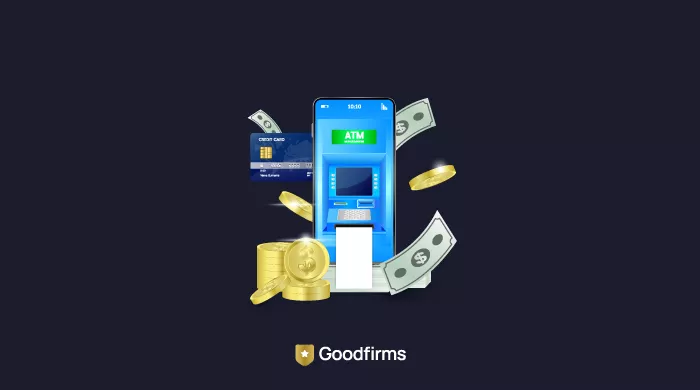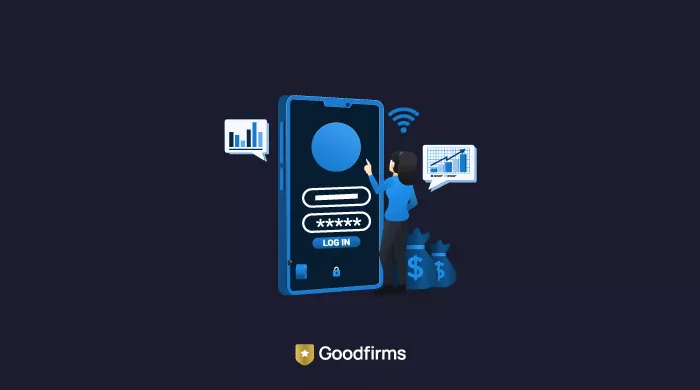To preserve your business, it is of utmost importance to have top-notch security of your mobile apps. With on-demand mobile apps in trend, users are more likely to draw towards these apps. To proffer a seamless flow of the app, the on-demand enterprise app development company needs to make sure the data within the users' mobile devices are secure, preserving the business reputation.
When a survey for secure mobile apps was done by Arxan technology, 90% of the apps studied had 2/10 significant security risks. Even today, 50% of the mobile app development companies don’t bother to allocate a separate budget for mobile app security.
The reasons behind are many, but some are lack of security knowledge in a new language and small security budget. Some of the reasons that could allow the malware to breach in & insecure your as well as your user’s data could be -
- Insufficient or weak server-side security or controls.
- Absence of binary hardening/protection techniques.
- Lack of secure data storage
- Weak transport layer protection
- Storage of critical app data on insecure locations.
- Missing authentication
- Bad encryption
- Malicious code on the client-side
- Weak implementation of hidden fields
- Enabling longer sessions
We cannot say every protection is full-proof in these ever-evolving technologies. As new technology or data encryption technology rises, hackers try to invent new methods to decrypt them and breach in the system. Living with an uncertainty of our app getting hacked the very next minute while working magnificently, this moment is frantic.
The stats say that every year there is an increase of 175.45% of malicious mobile malware infections. Moreover, 56% of the top 100 paid apps in the Apple App store have been hacked.
And as Microsoft found, 67% of people use personal devices at their business work, and this gives more risk to confidential enterprise data. Due to which many on-demand service app development companies face significant revenue loss, fraud cases, brand damage, intellectual property theft, and many more.
The critical aspect is to create, implement, and use a secure ecosystem of applications. Since all the three are responsible for secure & successful app streaming - developers to build secure apps, implementers to carefully vet and validate the mobile application, and lastly, users by using the app wisely. Thus, necessary measures must be kept in mind while building an app. These are some of the tips to secure mobile apps for SMEs and more.
How Can A Developer Develop A Secure App?
A developer needs to design a threat model at the beginning of the app development so that the app has a robust security system from scratch. After an on-demand app service development, testing an app will aid in checking the security systems. So, when building an app, you must -
- Harden source code encryption - Avoid configuring transport layer security (TLS) keys, API tokens, passwords, and secret keys within hardcoding configuration or source codes. Encrypt all sensitive data with multi-factor authentication and single sign-on authentication. You can also make use of password managers to simplify the use of complex passwords for users.
How Can Implementers Improve App Security?
A professional security team must be employed to test the app effectively. The unit can find the loopholes and areas of vulnerabilities within all the stages of the app and help fix them.
Implementers will:
- Analyze your whole application - Assessment of the entire ecosystem, not just application by application, gives clarity about the security standards. There might be some applications that might not have evident security flaws, but performing penetration tests might help. You will also get to know whether these apps, in combination with others, lead to the demise of the network.
- Proper encryption & secure implementation - Make sure to implement the right combination to secure the applications. If not implemented securely, your application ecosystem may result in an insecure system. From proper encryption to securing data-sharing features such as multi-factor authentication, monitor your application. Keep an eye on the performance as well as potential attacks and misuse.
How Can Users Secure Their Data?
No matter how secure the developers have made a mobile app development, the future success of an on-demand app depends on the way people use it. Notably, the small & mid-size enterprises that are still growing.
- Avoid decrypted wireless network - Always use a secure network to avoid any malicious attack on your confidential data. Always use a secure VPN, a virtual private network, when you need to make use of the internet on your mobile device.
- Create and manage passwords - Passwords are the most vulnerable point where a hacker could breach in your device or hack your essential data. Thus, creating robust data and avoiding password manager to save passwords will aid a lot. Giving an additional 2-step authentication will provide an extra layer to your app.
- Secure the data in the backend - Cloud and other servers should have security measures for secure to and fro of the data through APIs. To prevent unauthorized access, all the transit routes must be verified - passing from the client’s back to the app’s server and database. One of the methods is containerization, which stores data and documents securely in containers. Another technique is Federation; this next-level security dispenses the resources across a different server with separate encrypted keys for extra caution.
- Instead of BYOD implement MDM - Companies that allow their users to use their own devices have the highest risks of getting vulnerabilities. Instead of enabling BYOD (Bring your own device) policy, use extra caution like MDM. Mobile device management is a worthy investment allowing the companies peace of mind for their massive confidential data as well as allowing the employees ease of work.
To Conclude -
With the maximum number of mobile users, mobile app development companies prefer mobile-first designing of any product then website. With a multitude of apps easing everyday lives, hackers are trying to take advantage of it by breaching in your devices, servers & other modes to fetch data.
Although, the list is limitless as there are many more ways to secure application. Because every app is designed differently, and not every app would need the same method for security.
Thus hire a dedicated app developer to develop an on-demand application, inbuilt a robust mobile security module that is capable of responding to the breach, threats & bugs quickly — the more secure your app, the more loyal your customers.








